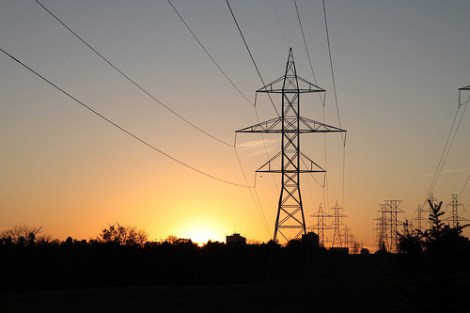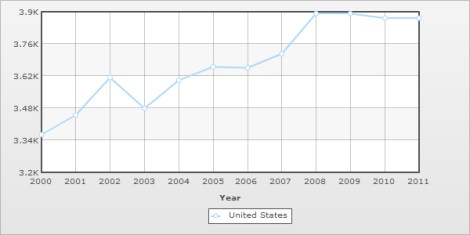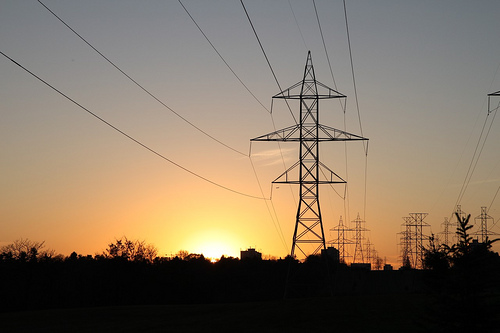
Beautiful and lonely. (Photo by Nayu Kim.)
In his assessment of why the U.S. led the world in cutting CO2 emissions last month, David Roberts noted that the recession flattened demand for electricity.
A forecast out today suggests that demand will stay flat for some time to come. From FuelFix:
The nation’s power demand will grow by about 1.1 percent [a year] through 2030, Wood Mackenzie analysts projected, instead of the nearly 2 percent growth experienced during past two decades.
In other words, the level of electricity the country was expected to use by 2019 now won’t be reached until 2030, the firm forecasted.

U.S. electricity consumption, 2000-2011
Again, the culprit is the economy — and the impacts won’t only be felt by fossil-fuel companies.
As the slow economy suppressed power demand, efforts to reduce electricity use through government mandates on light bulbs and improve the energy efficiency of home appliances have further stripped the nation’s need for electricity.
Traditional power generators who rely on coal and natural gas won’t be the only ones to feel the impact, the report noted. Several state mandates require a certain percentage of total power use come from wind, solar and other renewable energy sources. When total electricity demand doesn’t increase, that limits incentive to build new wind or solar farms.
Which is why we say it’s a mixed blessing. Without increased demand, there won’t be much demand for investing in new electricity production systems.
There’s an interesting corollary to the economic impact on reduced emissions. In 2002, President Bush declared a goal of reducing greenhouse-gas intensity 18 percent by 2012. According to the Capital Weather Gang, he did it.
I found — between the end of 2001 and the end of 2011 — carbon (the most abundant greenhouse gas emitted in the U.S., 83% of greenhouse gas emissions) intensity dropped by 18 percent almost on the nose.
It’s just a damn shame that Bush had to tank the entire economy to get it done.



